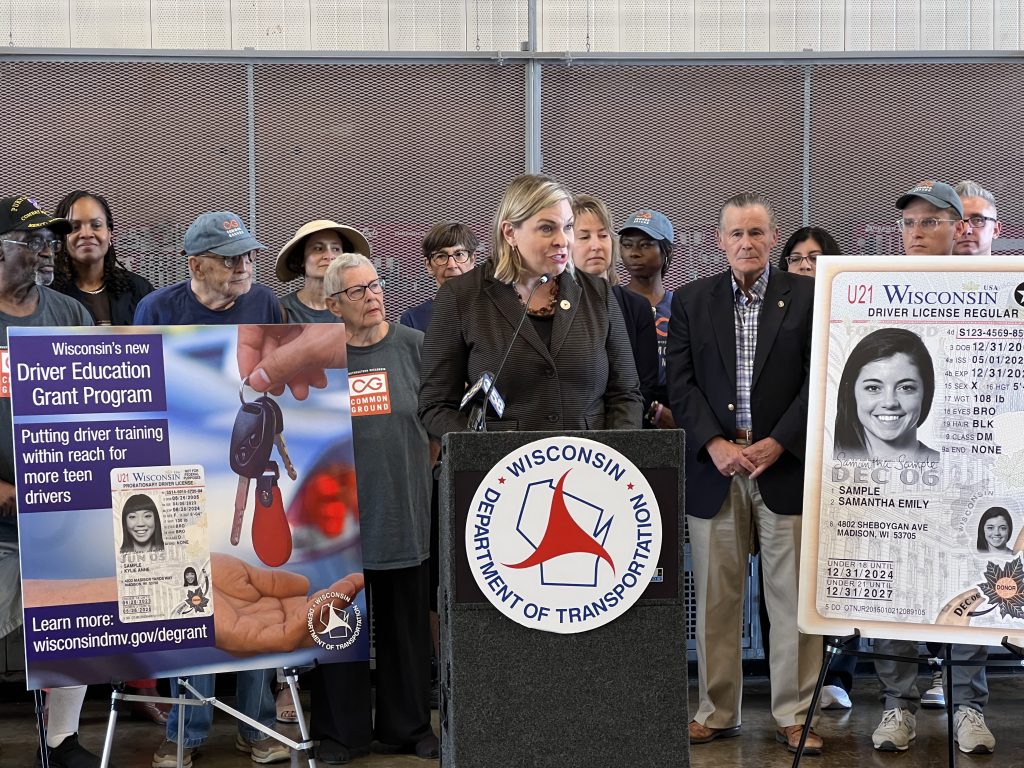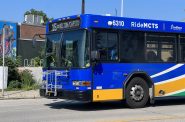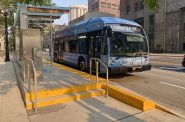New Program Will Fund Driver’s Ed For Low-Income Students
Insurance industry fees will cover 100% of driver’s ed cost. Effort led by Common Ground.
A new Wisconsin Department of Transportation (WisDOT) program will pay to send approximately 11,500 low-income high school students per year to driver’s education classes.
The program, designed to tackle reckless driving and equity issues across the state, comes as a result of a two-year campaign by Common Ground Southeastern Wisconsin, support from the insurance industry and bipartisan backing in the Wisconsin State Legislature.
“This will have a positive impact on reducing reckless driving and improving safety on Wisconsin’s roads,” said Department of Motor Vehicles administrator Tommy Winkler.
“It won’t completely solve the problem of reckless driving, but we think it’s part of the solution,” said Common Ground strategy team member and a former Pathways High School administrator Franz Meyer. “It’s been 20 years since the state funded driver’s education, and the number of people that have taken driver’s education has been going down, and the number of people driving recklessly has been going up.”
The former school administrator said he routinely encountered students at Pathways that wanted to get a license. “It’s not that they couldn’t Google a driving school, it’s that it was too expensive. Many of the families just don’t have the money to spend on driver’s ed,” said Meyer. A state report says drivers’ education programs typically cost between $450 to $600 per student.
Backed with $6 million in funding, WisDOT will now make full tuition payments to driver education programs across the state to offset the cost of serving students eligible for free or reduced lunch. Funding is available for teenagers on a first-come, first-served basis and transmitted directly to the school. The funding covers 30 hours of classroom time, six hours of observation time and six hours of driving.
“We are so excited to officially announce what we hope could be a life-changing opportunity for teenagers who want to learn to drive,” said WisDOT Secretary-designee Kristina Boardman. “Students who receive the grants can enroll in any driver education program offered by an authorized provider.”
Republican Representative Robert Donovan and Senator Dan Knodl were credited with advancing the proposal through the Wisconsin State Legislature. The program is being funded with excess insurance fees paid to the state. According to a state report, the Office of the Commissioner of Insurance routinely returns $26 million to $27 million annually to the state’s general fund. Governor Tony Evers signed the proposal into law in December 2023.
A wide array of Common Ground members and public officials stood behind the speakers, including Donovan, Police Chief Jeffrey Norman, Common Council President José G. Pérez and members Sharlen P. Moore, Scott Spiker, Peter Burgelis and DiAndre Jackson, Senator-elect Dora Drake (D-Milwaukee) and Common Ground director Jennifer O’Hear.
“By making driver education accessible to all, we are not just teaching our teens to drive, we are fostering a sense of independence, responsibility and safety,” said Paul Manriquez, Assistant State Superintendent of Public Instruction of the Division for Learning Support.
Meyer said it would not only allow students to drive, but help them get and maintain jobs and vote.
The press conference was held in the automobile repair training lab at Milwaukee Public Schools‘ Pulaski High School, 2500 W. Oklahoma Ave.
MPS, through Milwaukee Recreation, offers a driver’s education program for only $35. The fee offsets the state’s cost of a permit. But the program is capped by funding constraints at 2,000 students. In 2022, Milwaukee Recreation direction Lynn Greb said she believed there was demand for up to 5,000 students per year. On Thursday, a Milwaukee Recreation representative said the program has led to more than 8,000 students earned their learner’s permit from the state.
The new WisDOT program is available to any student across the state, regardless of school. The only requirement is to be eligible for free or reduced lunch. The state requires individuals under the age of 18 to complete a driver’s education program in order to receive their license. A fiscal estimate tied to the legislation said there are approximately 128,000 eligible high school students.
High school seniors Kahlil Steward and Jamorris Torres-Currin, who were involved in advocating for the program, said it would relieve stress on their families and support their independence. Steward said his involvement, which included meeting the governor, also showed him how to make change.
In interviews and speeches, multiple people said Common Ground, a broad-based nonprofit coalition, received a major boost from Mayor Cavalier Johnson in securing the program. The two have been at odds recently over Common Ground’s push to improve conditions at the Housing Authority of the City of Milwaukee, but Johnson was said to be a a key force in getting the insurance companies to support the program.
Wisconsin Insurance Alliance President Andrew Franken also drew praise for identifying a sustainable funding source and supporting the bill.
Applications are being accepted on the WisDOT website.
If you think stories like this are important, become a member of Urban Milwaukee and help support real, independent journalism. Plus you get some cool added benefits.
Political Contributions Tracker
Displaying political contributions between people mentioned in this story. Learn more.
- March 4, 2016 - Cavalier Johnson received $35 from Sharlen P. Moore
- May 5, 2015 - José G. Pérez received $10 from Cavalier Johnson

























I remember when driver’s ed was funded for all students. How times have changed, to our detriment.
@JE Brown, Absolutely. I’d venture to say we were better educated, driver’s ed-wise. An ounce of prevention…
Mandatory driver’s ed should be a part of obtaining every driver’s license renewal, as well as for those just obtaining learner’s permits as new drivers. Law’s and best practices change, yet drivers are never re-educated about what has changed in the preceeding decade!! New cars, new technologies, new laws all require periodic re-education for EVERY driver! And MPS and other public education institutions should be the purveyors of these essential trainings!
the over 65 crowd in America is taking an ever increasing % of taxpayer resources for their healthcare… which is the reason everyone else in America will continue to give up those things that “used to be”.
this is specific to health care, not social security. important to understand that soc security has never caused a penny of the current US debt, nor is it funded by income taxes. on the other hand, taxpayers directly cover over 80% of the Healthcare expenses for seniors.
paying the medical bills for seniors is a primary reason the rest of us will increasingly have less.
not a rant against grandma’s & grandpa’s … just pointing out the realities of the state & country.
this $6 million program funded by insurance companies is miniscyle… make sure to read the other big story on urban mkl this week = Gov Evers spent $250 million of taxpayer $ to cover senior assisted living .
@Wardt01 – What senior healthcare comes out of the Federal Budget? Medicare has its own separate taxing mechanism, like Social Security has its own. I do want to understand if I am missing something.
On the issue of why we can’t have “nice” things anymore, there are two key issues over the last 50+ years:
– Wage increases have not kept pace with productivity increases
– Tax rates, especially for the higher and highest income earners and the wealthy have been slashed
Combine these two issues, and we can no longer afford “nice” things, like driver’s ed, anymore.
Ward01: Thanks for telling us how older adults are the reason for chaos on the roads. Sounds a little cra-cray to me. But rather than just point out a perceived problem, what are some of your suggested solutions to these ongoing problems? Soylent Green ?